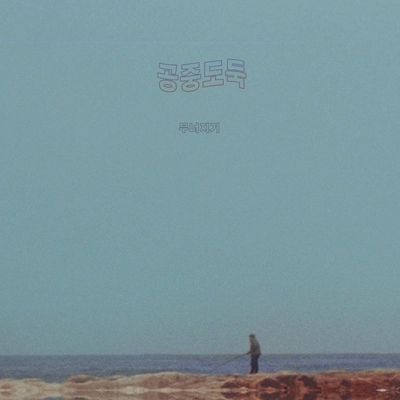My relationship with 무너지기
Jacob Collier is a multi-instrumentalist and singer who got famous doing covers on YouTube. His style is based on a lot of complex harmonies and rhythms, and he has a flair for what I like to call “musical effects”. An example of such an effect would be the waterfall effect with the voices at 1:20 in the linked video.
My broad definition of musical effects would be something like “gestures that stand out from the established texture of the music”. You might say you can divide up all sonic events in music into those that are part of the essential texture, and those that are not, with the latter being effects.
I bring up Jacob Collier to illustrate the concept because his use of effects actually makes it difficult for me to get into his music. It makes it feel like there’s a lot going on in the music (there is), but often it just doesn’t gel for me. Effects can be really cool and effective at supporting a main musical statement, but when things get too flashy, it starts to feel a little directionless.
Jacob Collier is not the artist I’m here to write about, but rather 공중도둑 (Mid-Air Thief). When I was thinking about what initially drew me to the album 무너지기 (Crumbling), though, I remembered the same thing stood out to me: his use of effects. Mid-Air Thief’s music is full of effects. The music is fundamentally unstable in its texture, with all sorts of sounds of mysterious origin flying in regularly. Often, the overall texture of the instrumental will just swap out completely between measures (though it never feels abrupt).

One reason I love Crumbling is because I find that he succeeds spectacularly at handling such a complex bouquet of sounds. Rather than descending into flashiness without direction, the effects all serve the music. Waves ride on a constantly shifting substrate of water, and in a similar way, these unstable textures end up coalescing into a real song with a steady through-line every time.
I can give these more mechanical reasons why the album originally caught my attention, but for an album to become one of my all-time favorites, it needs to reach my heart. Here, too, the album excels. To me, it speaks of the exploration of a lonely but vibrant inner landscape. The strangeness of the album’s sound palette is critical to establishing this feeling. In fact, I’d say it’s an outstanding example of unifying one’s musical techniques with emotional content.
This music was an ally to me during a particularly grindy era near the end of my computer science degree. The particular atmosphere of that time, of laboring over coding projects in my parents’ basement, always resonates in me when I return to this album. Even as I played it as background music over work, it was working its way into me, bringing me along on its journey. Now it’s music I wish to bring along with me through many more chapters of my life.
Have you listened to 무너지기?
Did it resonate with you?
Does my explanation of effects make any sense?
Let me know your thoughts at my Ctrl-C email: gome @ ctrl-c.club.